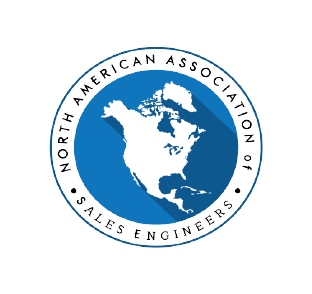North American Association of Sales Engineers
Water the Crops
The Training meeting had ended. Like so many sessions before, it was billed as sales training when in fact it had been product training. Lots of materials had been shared to show the enhancements to the product. There were several shiny new bells and whistles, none of which me or my colleagues had ever been asked for by a customer. We were assured that these new features were in the best interest of the customer and the best part was we could charge for them. What was even greater was we were being told we could earn lots of commission selling them. The trouble with all of this was there was not a shred of tactical sales strategy given to us, to help us with that process. Sound familiar to you?

As I talk to fellow sales professionals across the country, I hear countless stories like this where their organizations confuse Product training with Sales Training. Where they confuse CRM Training with Sales Training. In Product Training, features and benefits are discussed and we know that features tell, and benefits sell, but not alone and by themselves. They usually require an individual to put their spin on the benefit in a way that brings that to life for the customer or prospect. That successful spin might involve a story or an anecdote and should be delivered with enthusiasm and knowledge. This is where tactical sales training comes in, that is separate and distinct from all other trainings that involve salespeople. Just because you involve a salesperson in a training session does not make it a sales training session unless you are talking about how to sell what you are selling.
Thinking more about my career and the sales training I had received, I thought back as to how many sessions I took that were actually conducted by salespeople themselves. The more I thought, the fewer I could recall. The sessions were normally conducted by someone that was from Sales Enablement or Sales Support or the Sales Training Department. These were usually very nice people but had never worked in the field or sold the product they were speaking about. Sure, they could whip up a fancy 25-page presentation with the latest graphics and information, but their trainings never had an ounce of tactical sales strategy. I began to think if this was like this at my former firm, might it be that way at others? And if it is, how many salespeople are starving for Tactical Sales training, that could actually help them sell their products. And do their organizations even know this is an issue?
In the present environment with so many salespeople working from home and via zoom, the traditional “tell all” signs to gauge sales performance are becoming blurred. With fewer and fewer calls currently being conducted in a face to face environment, interaction between salespeople, their leaders and Senior Leaders can be scarce. The pandemic has led to even more pressure on results as clients and prospects retrench and refocus on their bottom lines and examine every item of cost and process to ensure their own survivability. As that happens, what worked for Salespeople in an up economy becomes a struggle for them in an uncertain economy. To further combat these poor sales results, companies across the country cut budgets for items that are considered not business critical and an unnecessary expense. Unfortunately, one of the items first on the chopping block, becomes training. I liken this to a farmer who grows crops, where the price has gone down for his product. Does he stop watering the crop and risk losing it all, or does he water it intelligently, ensuring he has a harvest and can get what the market will bear?
In such uncertain times, businesses in my opinion should consider this the best time to tactically train their salespeople. Just like the farmer who continues to water their crops, continue to feed your salespeople with the tools to harvest the business that is available in their markets. More importantly it is critical to invest in the right training for your specific needs, from the professional that can best provide it. Do everything you can to help your salespeople grow and prosper as opposed to withering and dying on the vine. When it comes time for the harvest, they will thank you and you will see the results.
Roger McNamara Bio:


